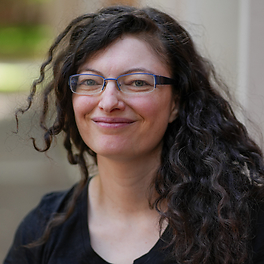Suessmilch Lecture
Length-Biased Sampling as a Unifying Concept in Population Studies
Elizabeth Wrigley-Field
Online Presentation, November 08, 2022
As part of the Suessmilch Lecture series, Elizabeth Wrigley-Field from the University of Minnesota spoke about the length-biased sampling as a unifying concept in population studies.
Abstract
A single mathematical relationship, well known by mathematicians but little discussed in sociology and demography, structures phenomena that range from the intergenerational transmission of socioeconomic status to assessing the efficacy of cancer treatment; from criminal recidivism to lifespans and demographic frailty. Elizabeth Wrigley-Field makes the case that this relationship, "length-biased sampling," should be understood as a unifying concept in population studies - particularly in contexts that switch perspectives between different levels of aggregation or that mix together cohort and period perspectives.
Recognizing the length-biased structure underlying these problems can provide new intuitions for practical applications. Elizabeth Wrigley-Field will also argue that three distinct mathematical forms for expressing length-biased relationships provide different insights, and so re-expressing substantive applications that seem most natural in one form in terms of the other form is a strategy for identifying new insights. To illustrate these ideas, she presents new expressions for the average lifespan of the living in stationary and stable populations and explore their relationship to period and cohort measures. Substantive applications include interpreting the lifespan of a prevalent cohort in epidemiological studies and estimating the duration of incarceration for those currently in prison.
About the Speaker

© Elizabeth Wrigley-Field
Elizabeth Wrigley-Field is an Assistant Professor at the University of Minnesota in the Department of Sociology and the Minnesota Population Center. She specializes in racial inequality in mortality and historical infectious disease and co-leads (with J.P. Leider) an ongoing project on COVID-19 mortality in Minnesota. She is also a quantitative methodologist, developing models designed to clarify relationships between micro and macro perspectives on demographic relationships.